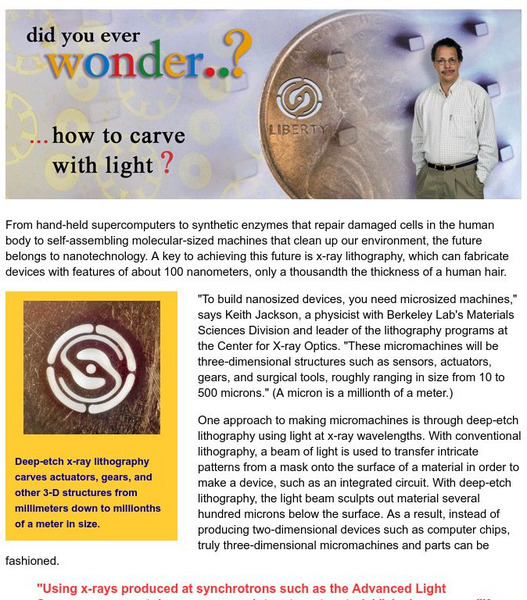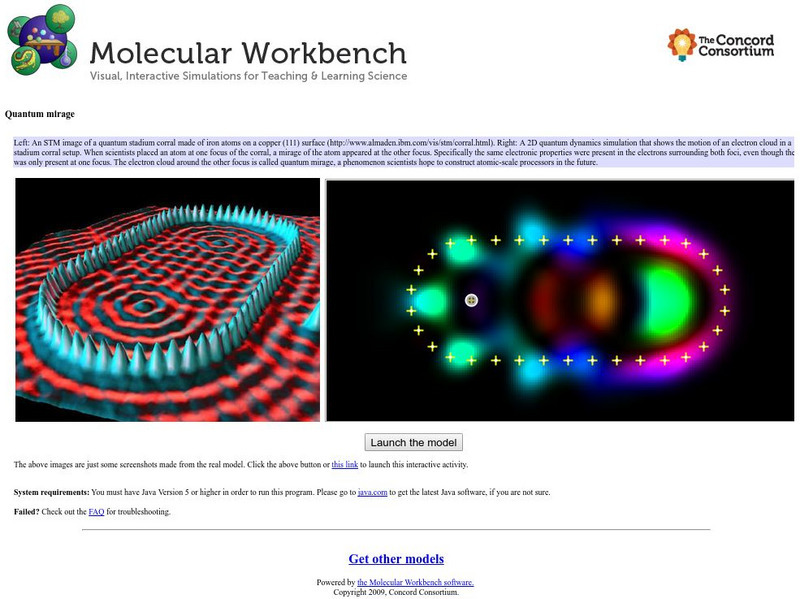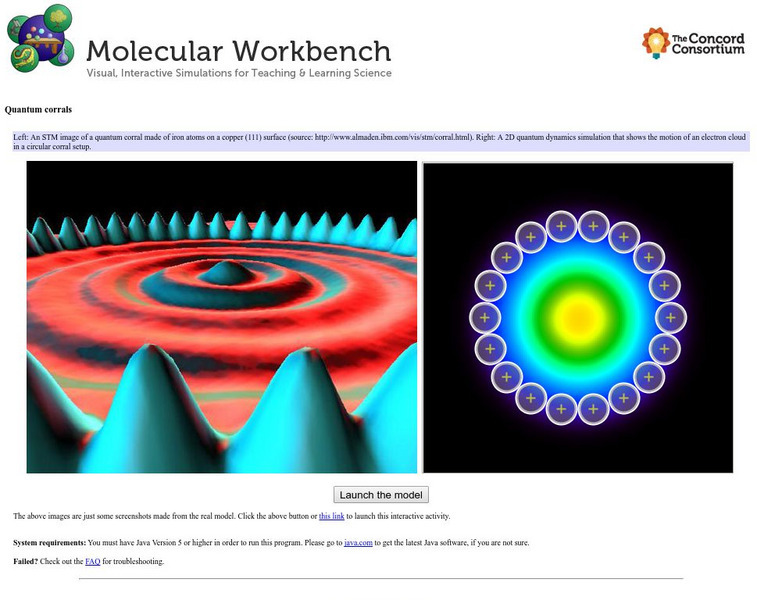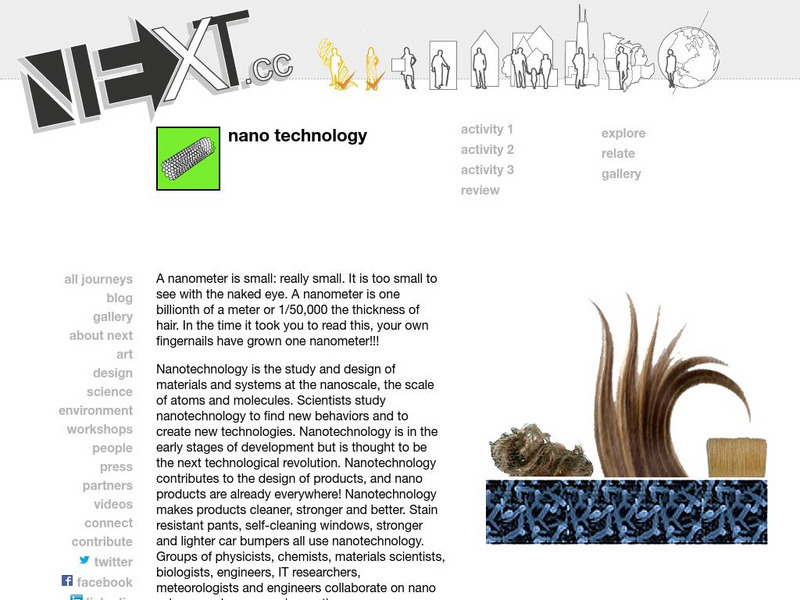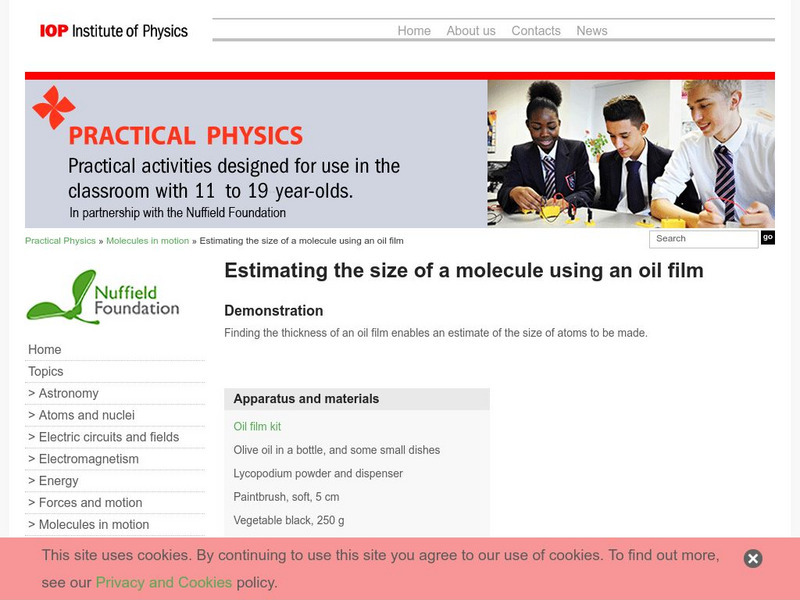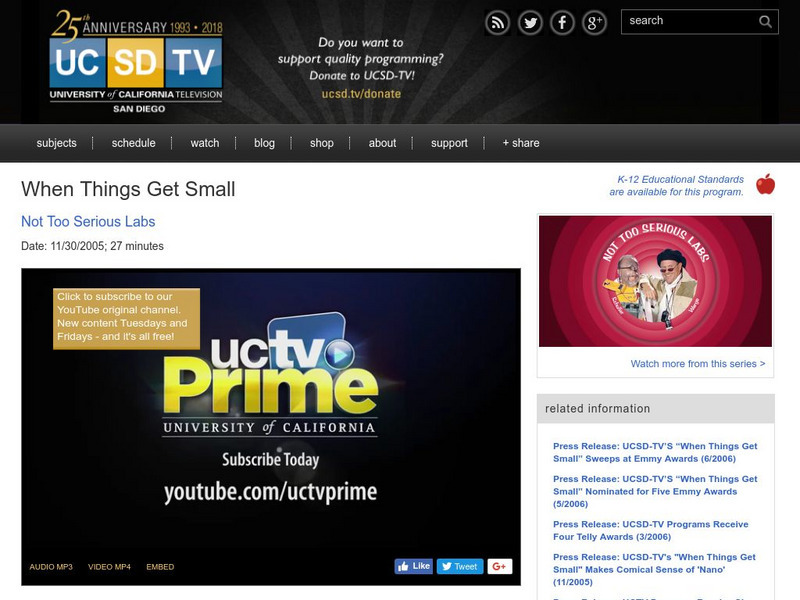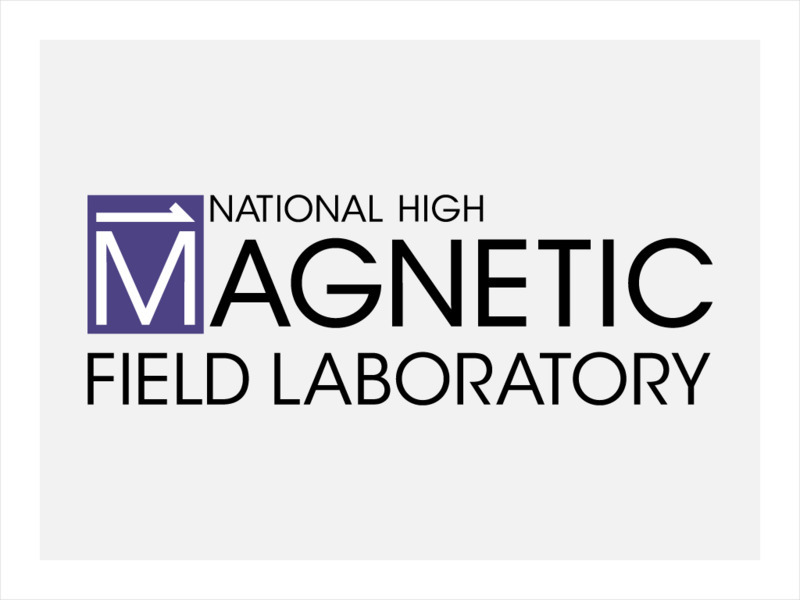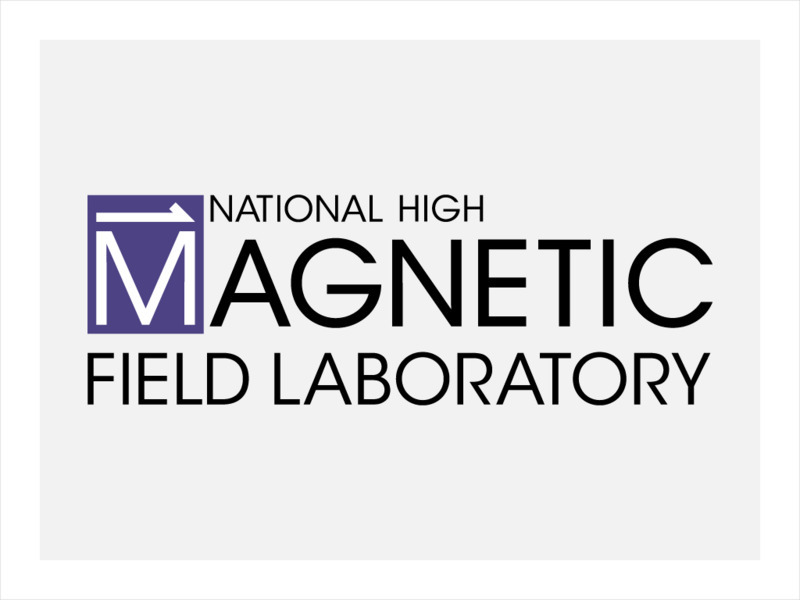Other
Nanozone: Save the Farm!
This interactive animation, with voiceover narration and clear diagrams, demonstrates how a type of nanotechnology called a microcantilever can be used to determine the presence of infectious agents in cow's milk.
Lawrence Berkeley National Laboratory
Berkeley Lab: Did You Ever Wonder? How to Carve With Light?
Students explore nanotechnology. The article discusses deep-etch lithography and three-dimensional micromachines. The resource consists of pictures, quotes, and links to additional resources.
Concord Consortium
Concord Consortium: Molecular Workbench Showcase: Quantum Mirage
An animation of a scanning tunneling microscope, STM, image of a quantum stadium corral made of iron atoms on a copper surace.
Concord Consortium
Concord Consortium: Molecular Workbench Showcase: Quantum Corrals
An animation of a quantum corral made by iron atoms on a copper surface.
Concord Consortium
Concord Consortium: Molecular Workbench Showcase: An Electronic Star Coupler
"This model shows a design of an electronic star coupler that can split an input electric signal into three outputs."
Next.cc
Next: Nano Technology
Learn about nanotechnology and why scientists are studying it by completing the three activities. Explore nanotechnology further by clicking on one of the numerous links provided.
TryEngineering
Try Engineering: The Power of Graphene
In this engineering lesson, students learn about nanotechnology, graphene, and its electrical properties and applications. Teams of students test graphene to determine whether it is an electrical conductor or insulator, then develop...
TryEngineering
Try Engineering: Nano Waterproofing
Lesson investigates the modification of a material at the nanoscale to enhance it with properties such as water and stain resistance.
PBS
Pbs Kids Go!: Dragonfly Tv: Nanobots
Lead the Nanobot through an obstacle course. Remember how positive and negative charges work. Once players get the hang of the game try a creating an original course.
Other
Foresight Nanotech Institute: Frequently Asked Questions About Nanotechnology
A useful list of questions and answers related to the development and uses of nanotechnology.
Other
What Is Nanotechnology?: Talk to the Scientists
This site explains how scientists are using nanotechnolgy to accomplish a variety of tasks. You can click on a scientist and they answer your question through audio.
Other
Institute of Physics: Estimating the Size of a Molecule Using an Oil Film
Help your students understand the scale of nanosize objects with this activity. By placing a drop of oil on top of another, students will estimate the size of an oil molecule. Includes activity instructions, analysis questions and...
Concord Consortium
Concord Consortium: Molecular Workbench: Nano Differential Gears
View a hypothetical model of gears created be intermolecular interactions.
Concord Consortium
Concord Consortium: Molecular Workbench: Hypothetical Nanoscale Machine
Observe the intermolecular interactions of a hypothetical multi-gear nanoscale machine.
Concord Consortium
Concord Consortium: Molecular Workbench: Molecular Sorter
Observe the sorting process of a hypothetical nano purification machine.
Concord Consortium
Concord Consortium: Molecular Workbench: Sorting Molecules With a Nano Conveyor
Observe how molecules can be sorted in a hypothetical nano conveyor-belt mechanism.
Concord Consortium
Concord Consortium: Molecular Workbench: Molecular Planetary Gears
Observe the movements of a molecular planetary gear.
University of Virginia
Uva Virtual Lab: Nanoscience Class Home Page
Beginner level resource for studying nanoscience and nanotechnology. Find an exhaustive collection of virtual labs are contained in the syllabus.
Other
University of California Television: When Things Get Small
An entertaining video that explains the scale of nanometers as well as some of the innovative scientific work being done in the area of nanotechnology, including quantum tunneling and the creation of the smallest magnet ever known. [28...
Smithsonian Institution
Lemelson Center: Spark!lab: Inspired by Nanotechnology [Pdf]
Introducing students to nanoscale in nature and in technology, a simple activity through which students create a colorful nanofilm using construction paper, nail polish, and a pan of water.
Smithsonian Institution
Lemelson Center: A Brief History of Small
The history of nanotechnology and its applications is presented with specific examples. Photographs of nanotechnology applications along with the year of their implementation are also available.
National High Magnetic Field Laboratory
Magnet Academy: Gerd Binnig
Gerd Binnig co-developed the scanning tunneling microscope (STM) with Heinrich Rohrer. The STM allowed scientists entry into the atomic world in a new way and was a major advance in the field of nanotechnology. For their achievement,...
National High Magnetic Field Laboratory
Magnet Academy: Heinrich Rohrer
Swiss physicist Heinrich Rohrer co-invented the scanning tunneling microscope (STM), a non-optical instrument that allows the observation of individual atoms in three dimensions, with Gerd Binnig. The achievement garnered the pair half...



